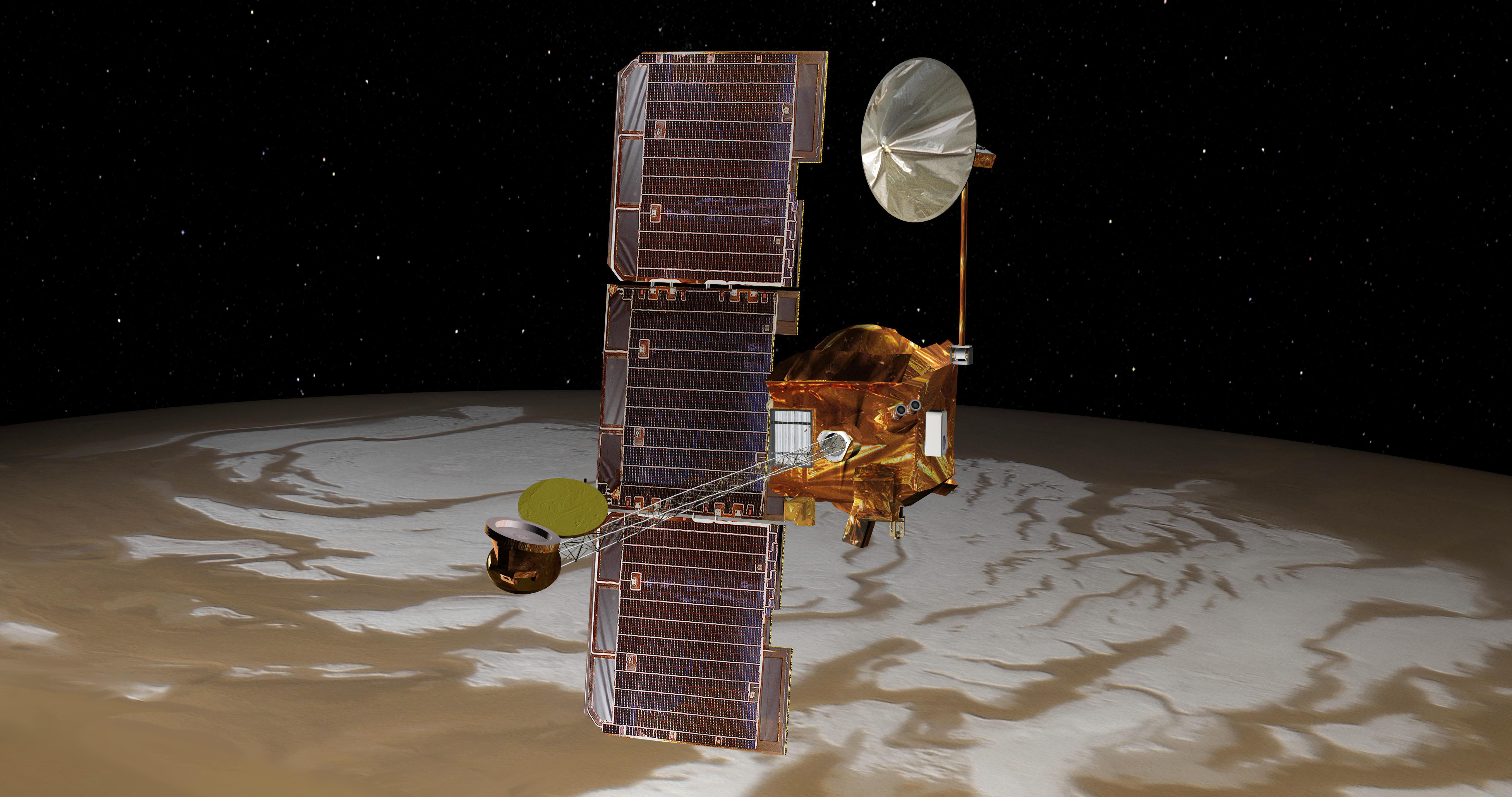Trump's NASA budget request could spell big changes for Mars missions

If President Donald Trump's budget request becomes reality, NASA may need to shuffle some Red Planet missions, including developing a new Mars Ice Mapper.
Trump and his administration sent Congress a budget request for the 2021 fiscal year in February. In its fine print, the Trump administration's 2021 budget request included a few major potential changes to NASA's Mars robotic exploration program. It suggests reducing funding for the 2001 Mars Odyssey and Curiosity programs so drastically that these missions would essentially end, and it introduces a new Mars Ice Mapper orbital mission for the agency to consider.
NASA leadership discussed the budget request, which kicks off the annual budget process and lays out the administration's priorities, during a digital town hall held on March 20. But the request is just that, and Congress is responsible for determining final funding allocations.
"Remember the president's request is just a proposal; it's not an actual budget," Craig Tupper, NASA Resources Management Division Director, said during the town hall. "We do not act on that proposal."
Related: Is the end near for Mars Odyssey? Trump's proposed 2021 budget could doom long-lived mission
Nevertheless, he said, the request does include some "funding holes" that NASA's science community would quickly recognize. Several of those were highlighted in the request summary, like canceling two Earth science missions and the WFIRST astrophysics telescope. But if all of the request's suggestions are retained in the final 2021 budget, Mars science will see big changes in the coming years.
On the loss side, two healthy missions, 2001 Mars Odyssey and the Curiosity rover, could see their ends come earlier than may be expected. "I know this was a tough one," Lori Glaze, head of planetary science at NASA, said during the town hall. "They're doing great science. We'd love to see them continue."
Get the Space.com Newsletter
Breaking space news, the latest updates on rocket launches, skywatching events and more!
And Glaze emphasized that no one is prepared to write the two missions off just yet. "We are of course still looking to find ways to keep those going," she said.
But if NASA does end up retiring these spacecraft, the agency would likely need to launch something new. That's because Odyssey plays a key role as a communications relay satellite, sending messages between Earth and NASA's surface missions on the Red Planet. And the Mars mission introduced in the budget request represents a potential solution to that problem as well as a scientific project, Glaze said in the first agency comments about the idea.
The spacecraft, called Mars Ice Mapper, would, as its name implies, map ice on Mars, using a radar instrument that Canada has expressed interest in building and flying, Glaze said. But it could also act as a communications relay for landed missions, just like Odyssey does now, she added.
But the agency is still early in its evaluation of such a project, which Science Mission Directorate head Thomas Zurbuchen called "not a strategic-scale mission" during the event.
"There is funding there to begin a study to look at a potential concept to develop an ice mapper mission to Mars," Glaze said. "There's not really a lot more to say at this point."
- Mars' atmosphere: Composition, climate & weather
- 7 biggest mysteries of Mars
- Ancient Mars could have supported life (photos)
Email Meghan Bartels at mbartels@space.com or follow her @meghanbartels. Follow us on Twitter @Spacedotcom and on Facebook.
OFFER: Save at least 56% with our latest magazine deal!
All About Space magazine takes you on an awe-inspiring journey through our solar system and beyond, from the amazing technology and spacecraft that enables humanity to venture into orbit, to the complexities of space science.
Join our Space Forums to keep talking space on the latest missions, night sky and more! And if you have a news tip, correction or comment, let us know at: community@space.com.

Meghan is a senior writer at Space.com and has more than five years' experience as a science journalist based in New York City. She joined Space.com in July 2018, with previous writing published in outlets including Newsweek and Audubon. Meghan earned an MA in science journalism from New York University and a BA in classics from Georgetown University, and in her free time she enjoys reading and visiting museums. Follow her on Twitter at @meghanbartels.










